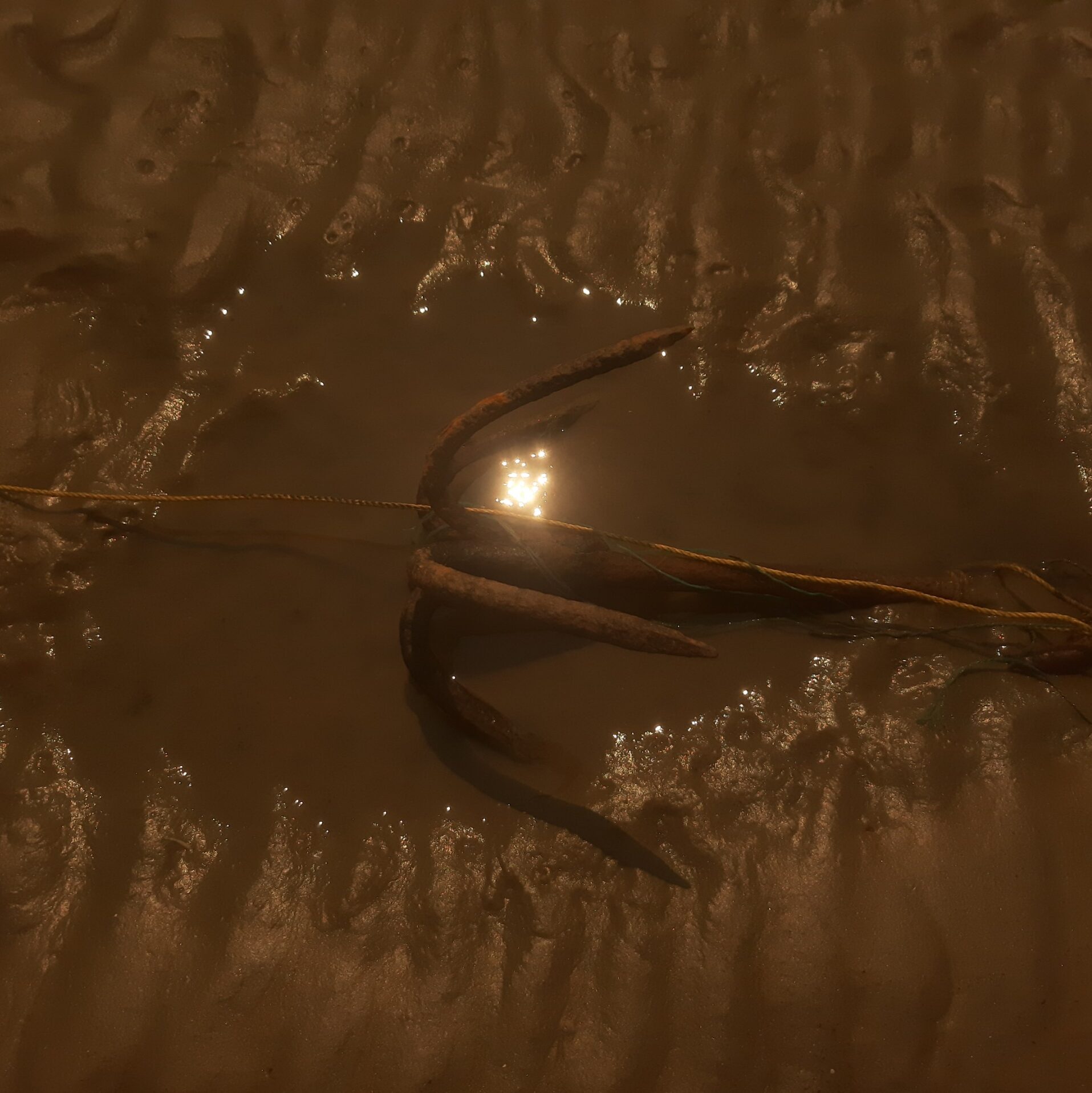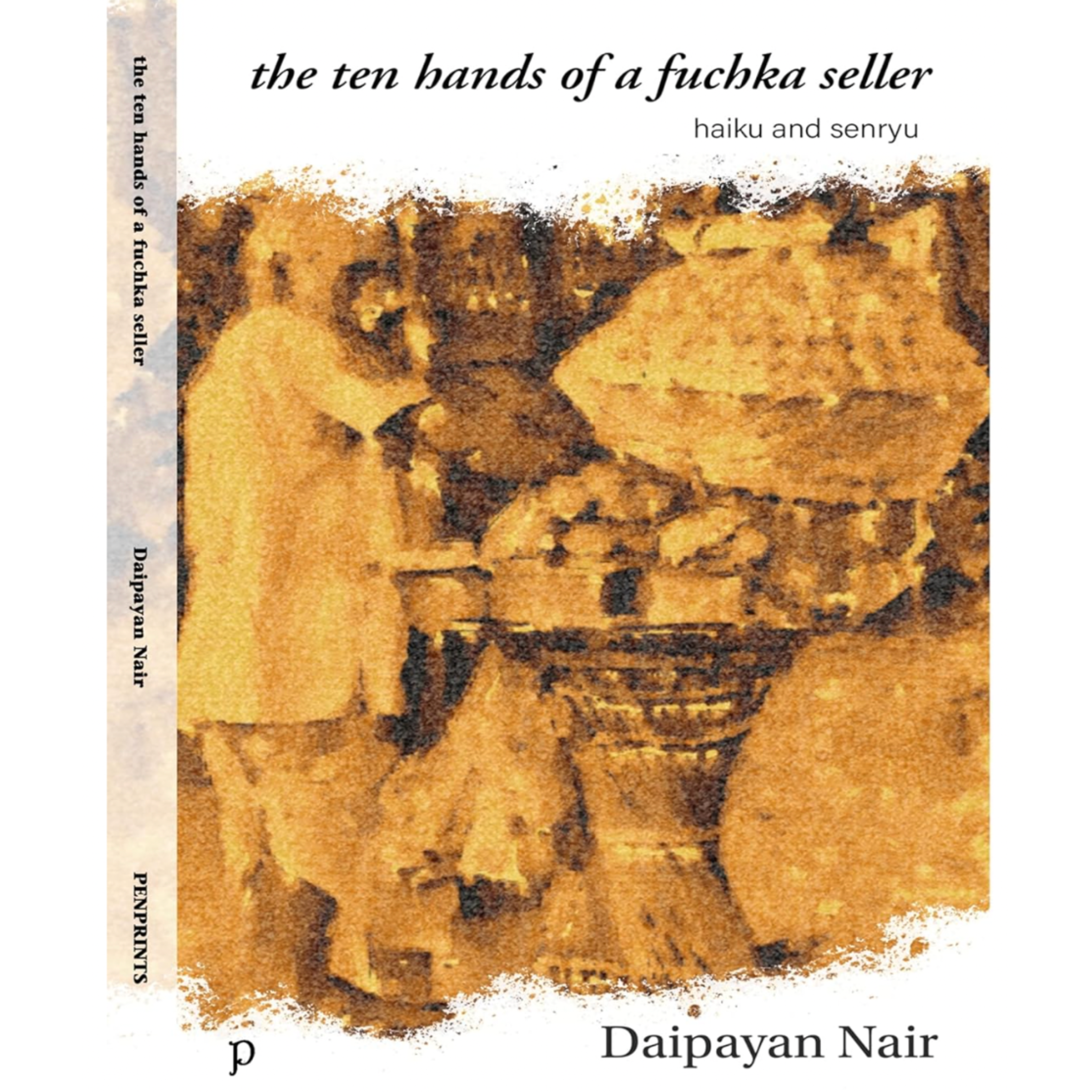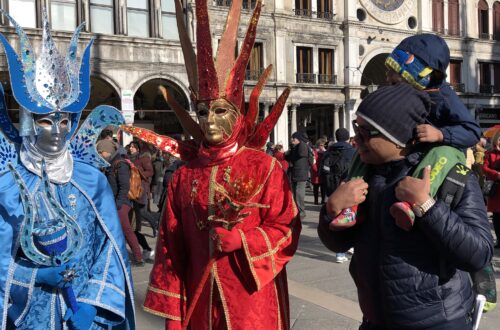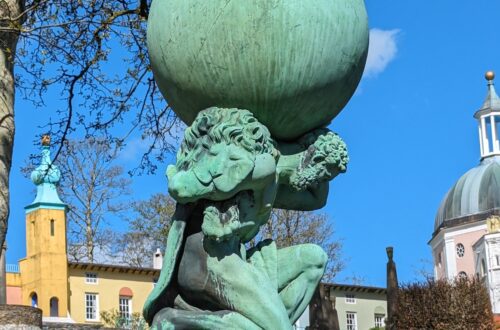Katha Haldar and Sarthak Das
22nd June, 2024. The sky here in Kolkata is bleak, overcast. Wind breezes gently across Sarthak’s hair as he stands on the verandah, wondering. It always rains in Indianapolis whenever it rains in Kolkata. It has always been so, ever since Katha began her doctorate at Indiana University. Sarthak picks up his phone, about to dial her number, when the phone starts ringing. The excited, exuberant voice from the other side brings a smile to his face, but his heart aches a little.
– Oiii, wanna write a travelogue?
– Hya, but where do we submit?
– I’ve found an excellent place. Check your WhatsApp.
– The Hooghly Review? Are these people Bengalis, by any chance?
– Possibly, not quite sure.
– But which place do we write about?
And after some debate, quite inevitable given their mutual wanderlust (farsickness, rather), the two agree upon Baguran Jalpai. Funny, smiles Katha, it was raining that day as well.
18th March, 2023. When our hearts ache, the sky weeps. That day too, melancholy drifted, touching the eeshaan koner aakaash, the northeastern sky. Weathered Kolkata sank within our hearts, leaving us bare, solitary. That wind whirled in deceit, emptiness encircling. Outside, never quite a refuge, forced us outward, to construct anew a shelter from ruins. But we yearned for more — a conclusive trial, of inward and within. And thus began a journey. On a sudden whim, we chanced upon Baguran Jalpai in an obscure travel blog.
Dawn had not bloomed yet. As we arrived at the bus depot in a taxi, fragments of light fluttered across the east. Then, it was a mere matter of minutes before boarding the next bus to Kanthi, and off we went. Rain was our shadow all along — through the concrete dreams of the Kolkata cityscape all the way down to the dusty tracks of Midnapore, where it bade us goodbye. As we gazed out of the bus window, the road unfolded before our eyes. Sometimes it veered, entering the heart of a distant village. Sometimes it blended seamlessly into a straight line that met our gaze, stretching into the horizon like a painter’s brush stroke on a vast, blank canvas.
And then, in some strange ghost town, our bus — fatigued — stood silent for what felt like hours. In poetry and singsongs, we waited. We waited as the afternoon heat caught up to us. We waited, pondering what the journey truly offers. The joy of returning home after college, or the path taken to survive beyond the walls of home? Or perhaps, the path through this unfamiliar ghetto? Each held a distinct freedom. Along these roads, people witnessed, emotions stirred, melodies, colours — all were etched in our mind. Or that astonishing path where our oblivious selves brushed against a few words, Oiii, how does it feel now? Astonished. Amidst gusts of wind swirling restlessly, an untimely spring descended. Amidst the crowd of many, ego bade adieu. The Devil, the God and the Bus Conductor took a little mercy upon us, and we inched towards our destination like, as William Andrew Robinson would say about the films of Satyajit Ray, a majestic snail.
– Ei Katha, shall we walk instead?
– Yaarki maarish na toh! Don’t joke around!
By the time we arrived at the Kanthi bus stand, it was afternoon already. The heat had taken a toll on us, and the entire bus — passengers, conductor and driver included — resembled an assemblage of half-rotten corpses. Then, we enquired about available transportation to the Baguran sea beach but nobody seemed to know where the fuck that was. Eventually when we mentioned the full name, Baguran Jalpai, the old man running a nearby tea stall told us the easiest way to reach there. You mean Jalpai, right? Baguran is the name outsiders use, we usually call it just Jalpai. The next step, he told us, was to book an auto-rickshaw to Junput from where we could apparently board auto-rickshaws to the Baguran sea beach. Following a heavy debate regarding the fare, an old autowallah agreed to take us to the Junput chowrasta for two hundred and fifty rupees.
Once in Junput following a fifteen-minute journey, we sought an “I’m hungry, let’s eat everything we can lay our hands upon” kind of lunch at a nearby bhaater hotel (rice hotel). The local boys in the hotel told us the history behind the strange but rather sweet name. Thick threads are often stiffened by craftsmen using a paste made from the roots of a tree called Heer, a process known as taason. Several steps of this stiffening process are collectively referred to as bo in the weaving industry. Guran, on the other hand, means to withdraw. At one time, the local weavers, oppressed by their rulers, withdrew the bo of the taason and fled elsewhere. Ever since, the place has been labelled as Baguran by outsiders. The word Jalpai comes from jwaalpai, which means a place where firewood is easily available — as is the case here, owing to the nearby jhaubon, a forest of casuarinas. A young autowallah — who was also having lunch at the same hotel — said, Yes, yes, I can take you there. But that’ll be two hundred rupees. Exhausted by the long journey and excited at the prospect of finally arriving at our destination, we agreed.
Junput to Baguran Jalpai was a mere twelve-minute drive. As we were getting off the auto-rickshaw, the young autowallah smiled, saying, A storm is due. You’ll never find any transport once the storm arrives. We took a good look at the sky. Rain, owing to our exceptional delay on the road, had finally managed to catch up with us, and it was on the way. Then he made us an offer. Take my phone number. Give me a call whenever you’re ready, and I’ll pick you up and drop you off at Kanthi bus stand. All for just four hundred rupees. We agreed. Scurrying our way through old, disoriented bushes and wild trees, we reached the beach. The sky was the colour of gravestones, and the beach empty as a cemetery. We were finally here — at the Baguran sea beach. Situated along the coast of the Bay of Bengal, the extensive shores of Baguran have earned recognition as a Biodiversity Heritage Site, owing to the abundance of rare crab species such as red crabs, fiddler crabs, and Limulus. As we stood on the virgin shorelines, a couple of crabs scuttled across. The faraway casuarinas shivered in the coldness of the rising wind. A jackal swiped its way through behind the trees, yelping. We were humbled by the profound wonders of nature.
The dense black sky swiftly merged with the expansive chest of the flamboyant sea. Gradually, in the stormy winds, the calm sea awakened from its slumber untimely. The waves were quietly hiding in the forefront of the advancing tide. The fishermen rushed back to their homes, leaving behind a few empty boats and desolate fishing nets anchored on the shore. Amay dubaili re, amay bhasaili re — the bhatiyali tune of the boatmen, resonating like a soft feather in the profound wind, drifted homeward. Musaafir hoon yaaron merged seamlessly with Aaj jaane ki zid na karo. The music bestowed an ineffable gift upon us, imprinting its lyrics and melodies in our souls. Just as this melody once captured the essence of two friends, hand in hand, escaping into the expanse of Baguran Jalpai’s seaside, joining rhythmically as they leapt, the sky embraced the horizon amidst the sea’s exultant cry.
But then, the exultance slowly gave way to an arrogant furore. The sea roared in fury, the rising tide devouring the long stretch of sandy shore before our eyes. The sky chimed in too, in vehement audacity. In an odd irony, the distant array of casuarinas — once dense green — had deepened to an impenetrable black. Nature’s entire hue had blended into the heart of the sea. The entire world was now shrouded in a thick, ashen veil. As if someone had held us by the neck, and draped our eyes in pitch black muslin. Will we be able to return? For a brief moment, we feared the sea. We feared nature. For a brief moment, we feared death. And we ran. We ran like rabid dogs, rushing towards the mainland. We ran, trying to keep pace, but how could our feet match its relentless surge?
The sea demands respect. The sea demands fear. And where it finds it lacking, it exacts strict punishment. A quagmire engulfed our feet as the sea closed in on us. Inexorable fear slowly sucked in all our joy, wonder, and excitement into the depth of the sands. As the roaring winds howled, we embraced one another and wept hand in hand — for what we believed was to be our final moment. We shivered — from the coldness of the breeze, the prospect of death, or afraid our parents would have to retrieve our bodies from this empty wasteland wherein we ventured without their knowledge — who knows? The more we struggled, the further we drowned into the abyss. But then, as we accepted our fate and stood there quietly, we remembered that quagmires don’t drown you beneath a certain point. And thereby, slowly wiggling through, we somehow made out — our dresses battered in mud, our shoes worn out beyond recognition — and limped away slowly. We pushed our way through the dead coastlines into an adjacent hotel, a homestay rather, Sagar Niralay as it was called. There, we washed our feet in whatever manner we could. And then? At a small shack beside the hotel, we — dilapidated, famished — had the best maggi of our lives, or so we thought until Lepchajagat happened a few months after. But that’s for another day.
Burying one whole shoe and the remnants of another’s frayed strap in the sand, we pressed on, the weight of the world sinking into our soles, as if we were hollow vessels, filled only with the gritty inevitability of dust. Then we phoned the autowallah, who stepped in at the earliest and carried us away. In this strange, hollowed out world, we trudged forward — our faces a mask of brightness — leaving behind the stark silhouettes of casuarinas and the ceaseless, indifferent roar of the sea. Storm was our shadow. Time, like a forgotten relic, remained buried beneath layers of sand and memory. Empty paddy fields flanked us, stretching wetlands, and the sky, tinged with a faint pink, succumbed to a creeping darkness — blackened as if — by a blot of ink. All of it sped past, abandoning us in solitude, while the rain kissed our napes. It was then, when a blaze of light split the vast horizon into two. Would you take such an evening? Whose fierce white foam, whose salty, flying taste of freedom sets the stage on the sandbar, our melancholic tales dissolve into the hues of twilight. Raindrops, like tears, fall, and we attempt to comprehend how much hurt it takes for such rain to pour. White blinds people too. The downpour halted our auto-rickshaw by the roadside, making progress impossible. By the time we arrived at the Kanthi bus station, it was past five thirty and we were drenched like soaked crows. As we boarded the last bus to Kolkata, we embraced — in awe of whatever it was we had just witnessed — and our lips melded into each other’s, dissolving within themselves God, Earth and Love.
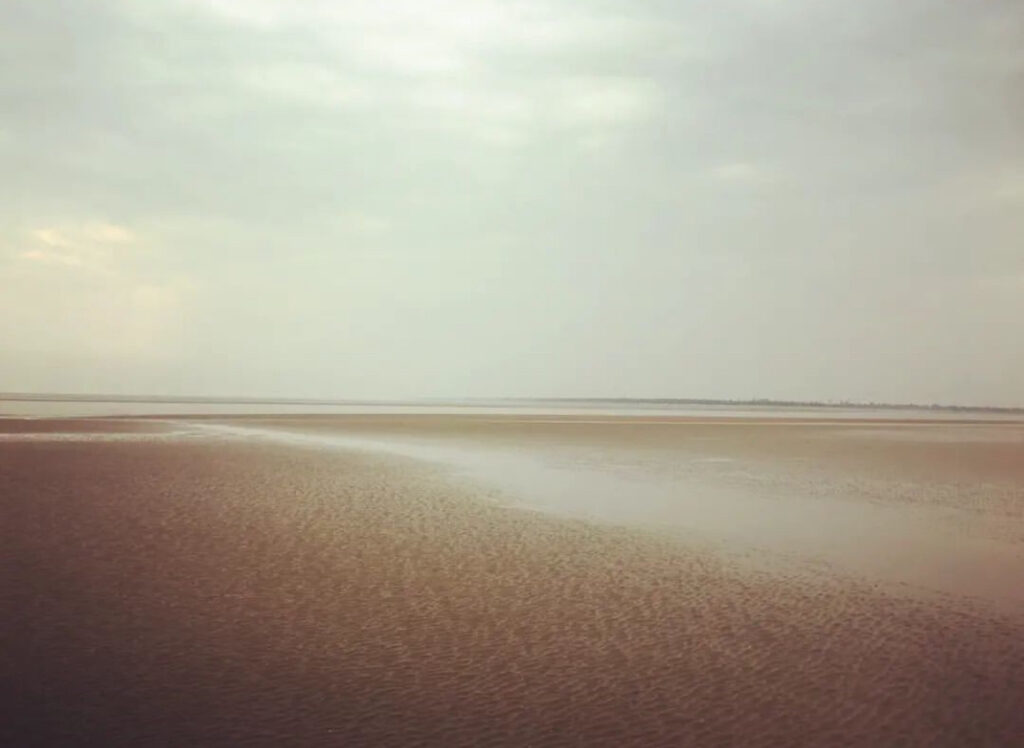
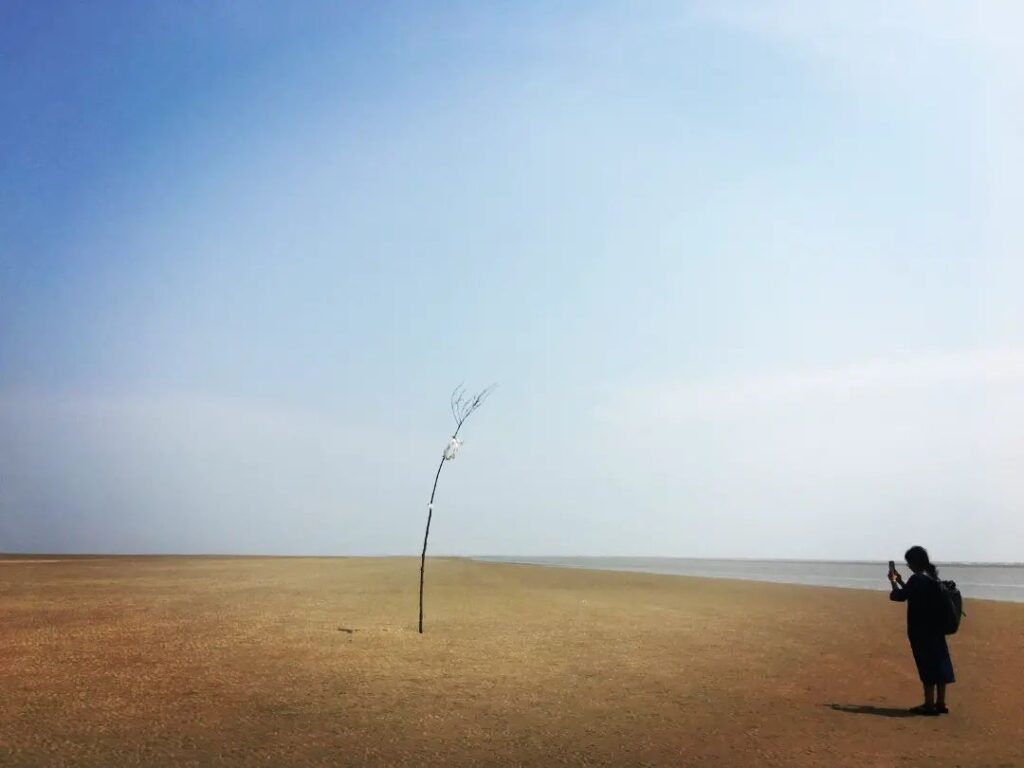
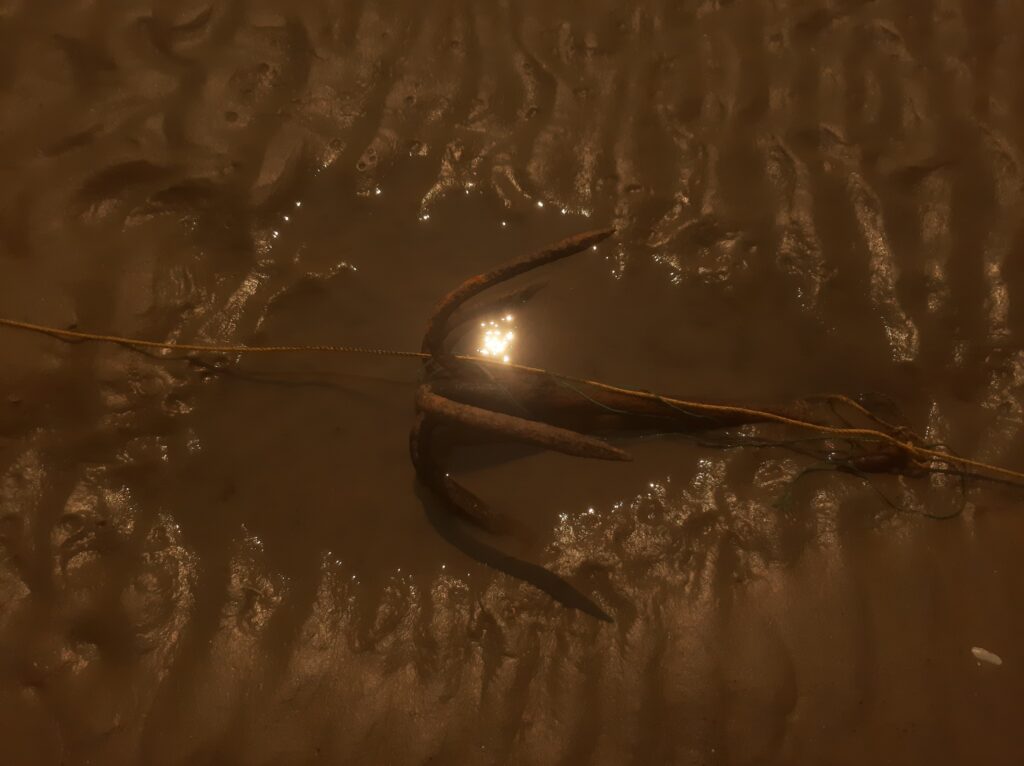
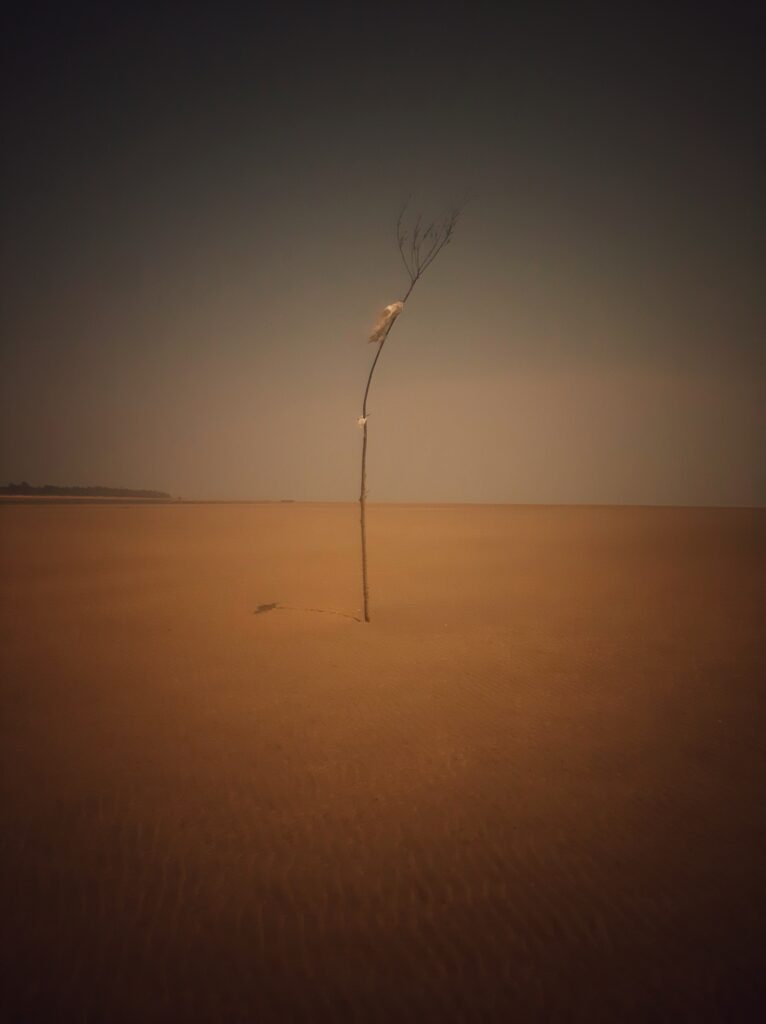
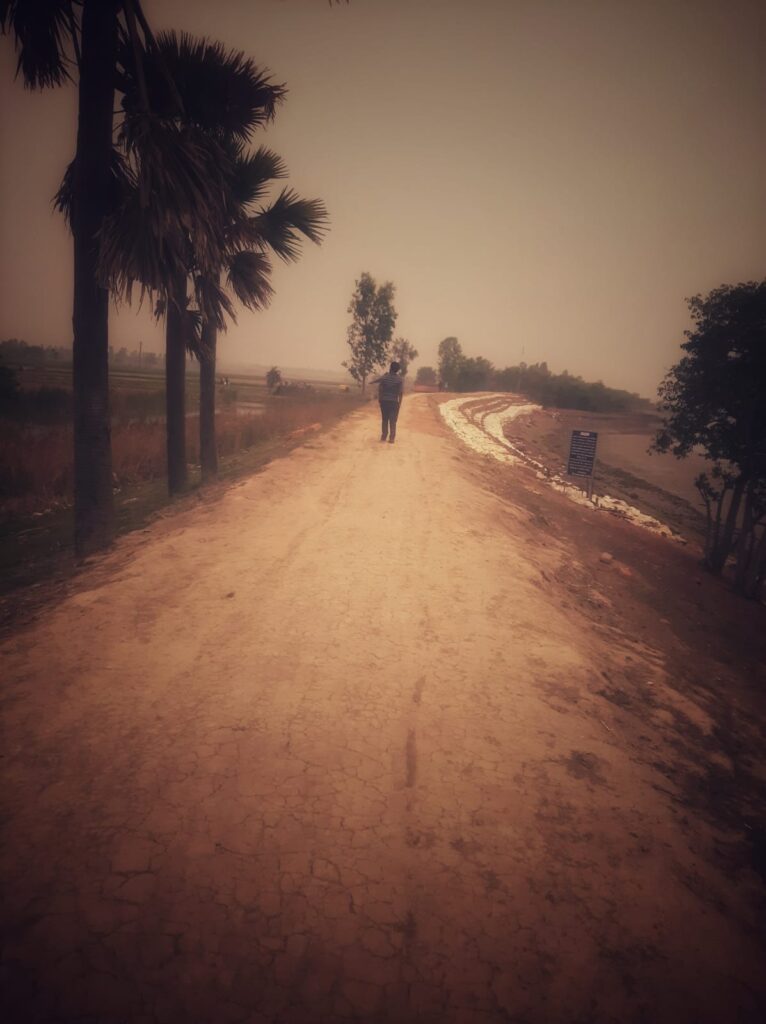
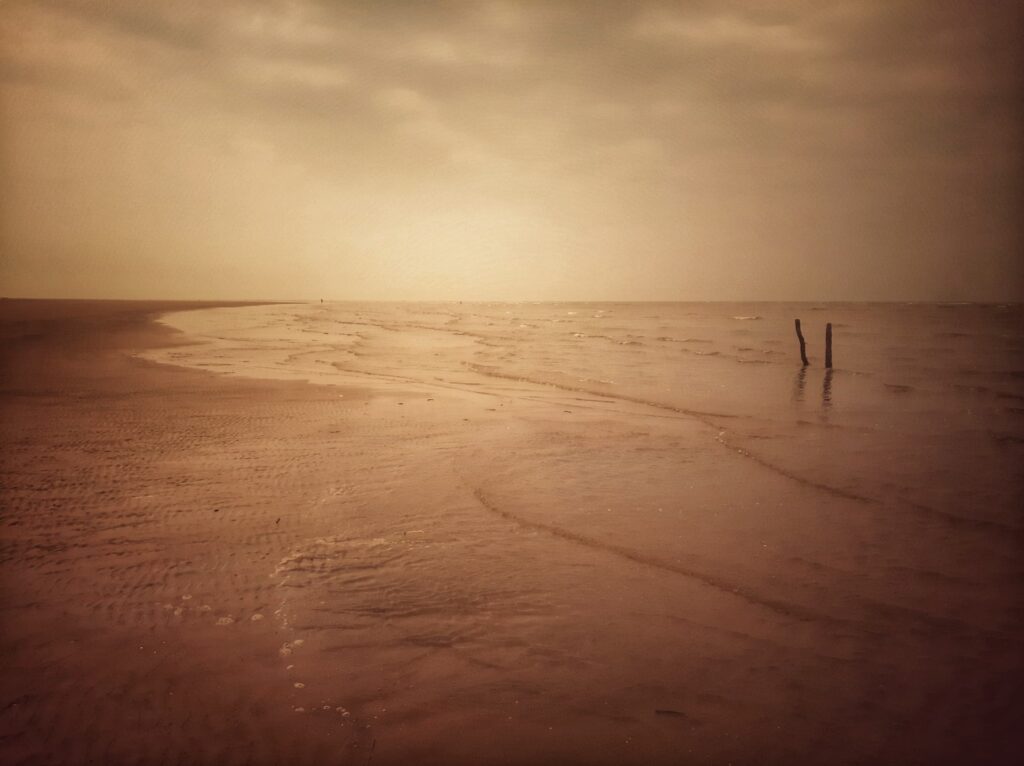
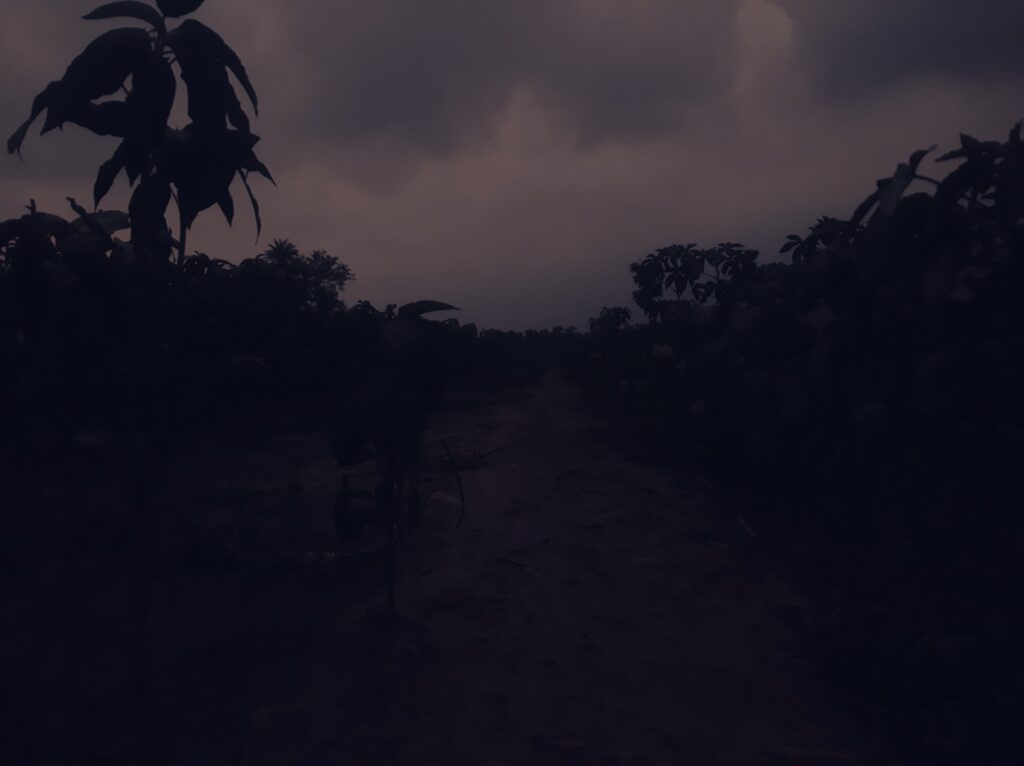
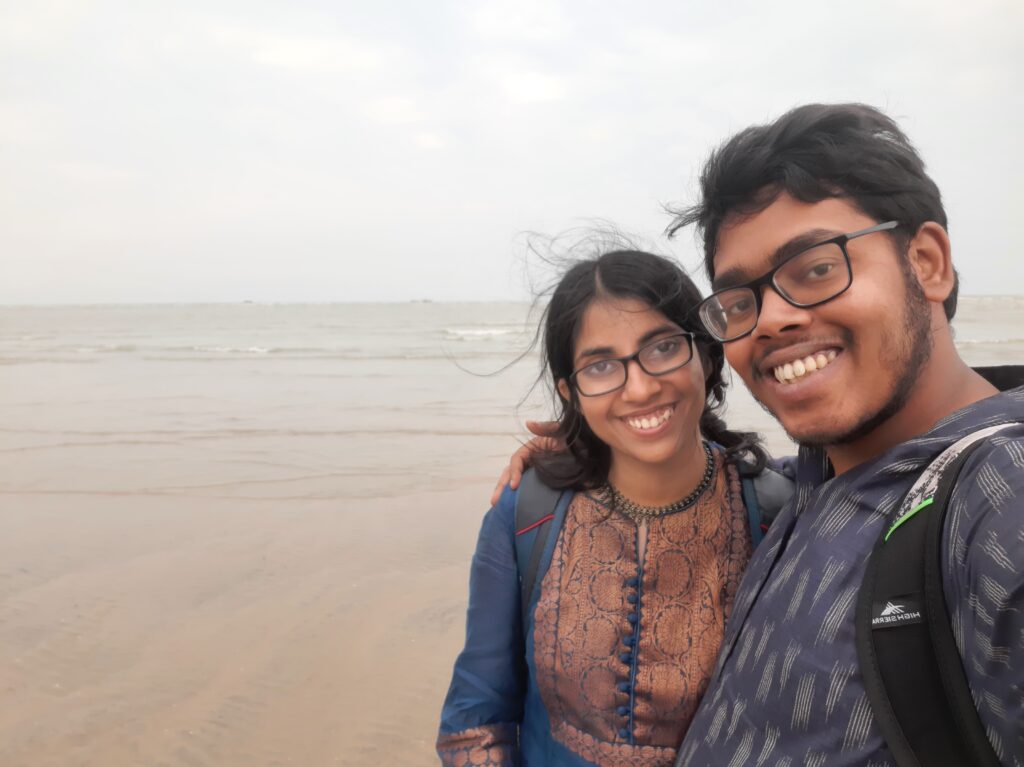
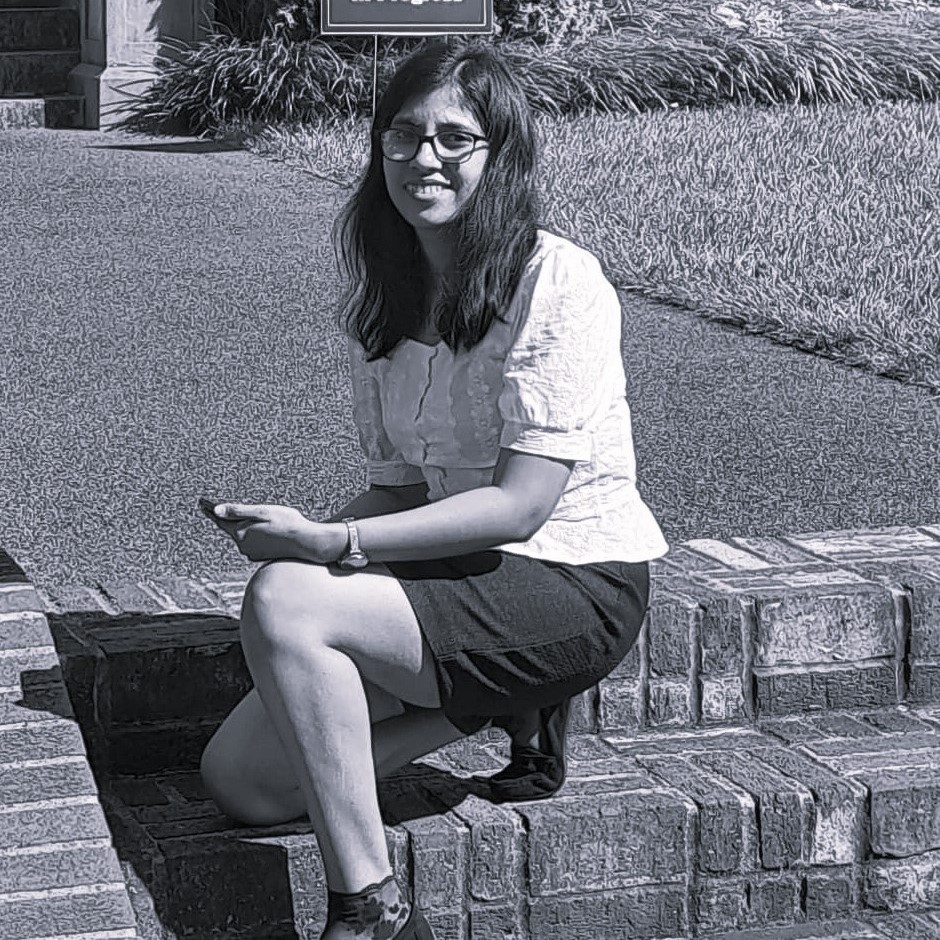
Katha Haldar is presently pursuing her Doctorate in Physics. Her principal areas of interest include drawing, photography, creative writing and music. Her artwork has been nominated as a finalist in Hashtag Kalakar’s Global Arts And Painting Competition 2021 in the Oil Painting category. Her photographs have been featured in COG India’s India Photo Fest 2022 held at the Indian Council for Cultural Relations, Kolkata and in Luna Art’s Reminiscence: International Photography Exhibition 2023 held at the All India Fine Arts and Crafts Society, New Delhi. Katha is also a translator and illustrator for People’s Archive of Rural India.
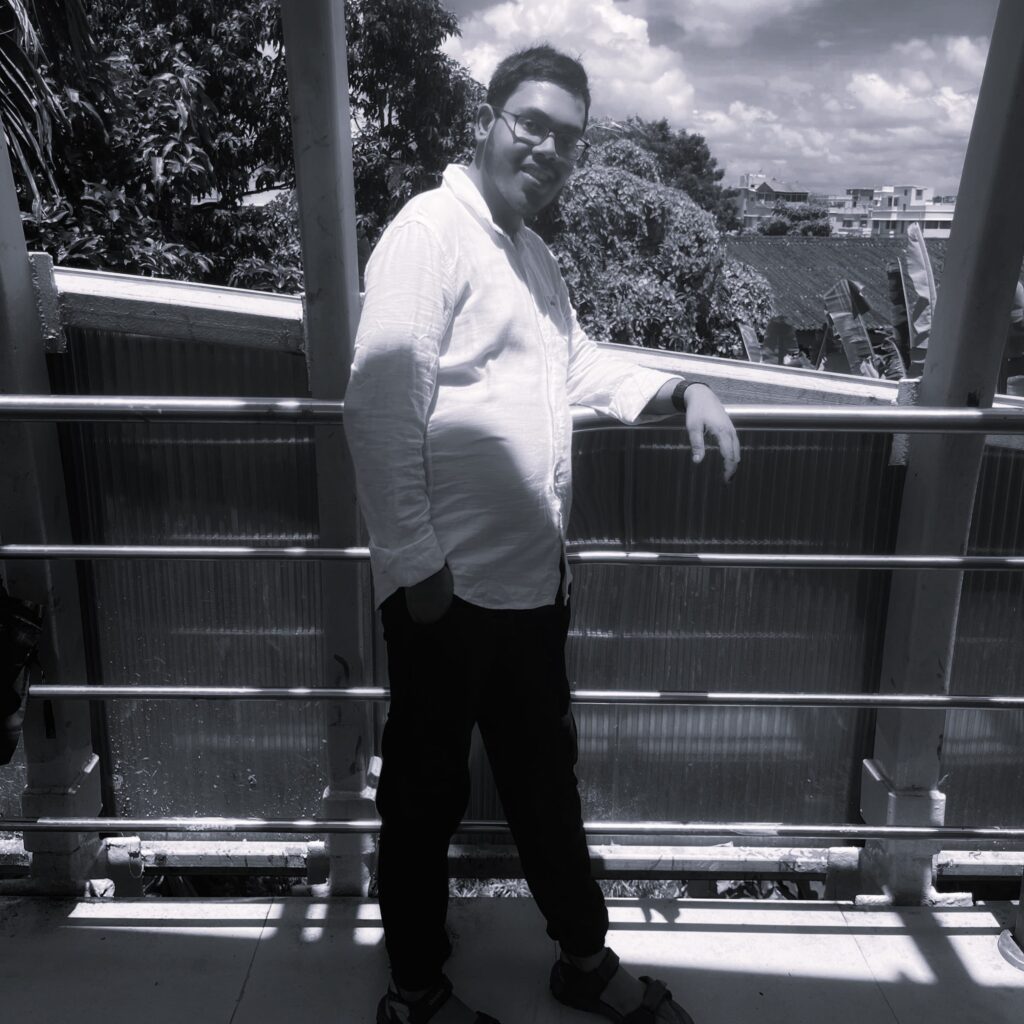
Sarthak Das is presently pursuing his Doctorate in Computer Science. He reads, writes and watches films as an expression of self. His short stories have been featured in Outlook India’s online magazine and the 81 Words Flash Fiction Anthology by Victorina Press, which won the 2022 Saboteur Award for Best Anthology. He has also contributed one-shot comics in collaboration with artist Boris Pecikozić to the Tales From The Dispatch anthology series from SnowyWorks and Indie Comix Dispatch.
